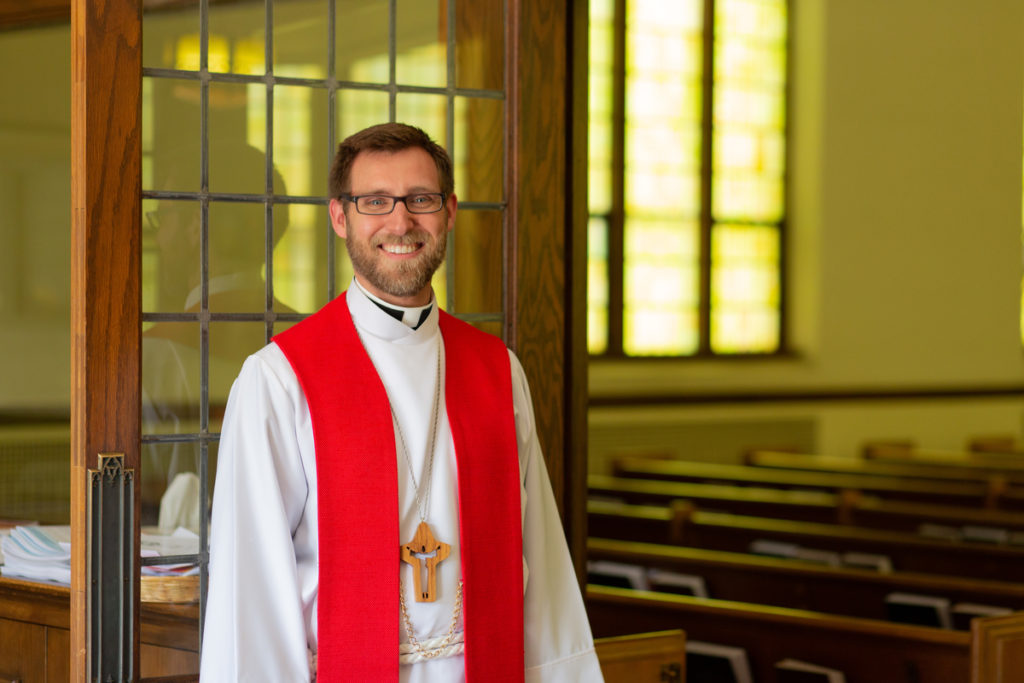Opening Presentation
Here is a paragraph from the opening presentation by Dr. Mark Mattes, which was chosen to sketch out one thinker’s understanding of the need:
“Lutherans of old had a percentage of pastors on their clergy rosters who were builders, not of course of buildings, but of congregations. Now, obviously not all pastors are builders. The word “pastor” means shepherd. Shepherds care for the flock. For Lutherans, this care means truthfully preaching the Word of God, administering the sacraments and the office of the keys, admonishing the erring, comforting the bereaved and distressed, teaching the scriptures, and urging godly living. This is all certainly building up the body of Christ. But throughout much of Lutheranism’s history there have been a percentage of shepherds who also had the skills and obedient wills to increase membership and involvement in congregations. Ask any lay person about a pastor in their congregation’s history who was a standout, and a name will quickly surface. It is that pastor who was the builder. Some congregations are fortunate to have had two or three such pastors. These pastors exhibit some important character traits: (1) they are unafraid of the unchurched and eager to engage them; (2) they limit their time in their offices; like a neighborhood police officer, they find various ways to know “their beat”; (3) they see stressful situations as opportunities for both personal and congregational growth; and (4) most importantly (and to use seemingly anarchic language), they want to win men and women for Christ and ground them in a faith commitment. In other words, they have the gospel at the ready on their lips and find ways to speak God’s Word to the unchurched, teach them the faith, and walk with them to baptism and life in Christian fellowship. For builders, sharing the faith is not cultural insensitivity but a mandate from Christ. They refuse to let fear of rejection govern their witness, quickly shake the dust from their sandals, and find the next person to speak to. In the Lutheran tradition, builders are thus not only biblical and confessional, but also resilient and evangelistic. Those congregations growing in the ELCA today tend to have pastoral leadership which exhibit these traits.”
- Dr. Mattes was one of the organizers of the first phase of the summit.
- His paper was published in the Fall 2017 issue of Lutheran Forum.
Presenters
- Eugene Bunkowske – chair of the board of the Institute of Lutheran Theology, Brookings, South Dakota – former professor at Concordia University, St. Paul, Minnesota, and Concordia Theological Seminary, Ft. Wayne, Indiana – retired missionary to Africa
- Anthony Cook – former director of curriculum design and development at Concordia Seminary, St. Louis, Missouri – currently director of United States Ministries for Lutheran Hour Ministries
- Mark Granquist – associate professor of church history at Luther Seminary, St. Paul, Minnesota
- Ken Jones – professor of philosophy and theology at Grand View University
- Russell Lackey – senior campus pastor at Grand View University
- Maurice Lee – pastor of NALC mission church that meets on campus of Westmont College, Santa Barbara, California – adjunct professor of theology, North American Lutheran Seminary
- Mark Mattes – professor of philosophy and theology, department chair at Grand View University
- Julie Smith – dean of students at Saint Paul Lutheran Seminary – LCMC pastor – secretary of the board of trustees of LCMC
- Jonathan Sorum – academic dean at the Institute of Lutheran Theology, Brookings, South Dakota
- Gene Veith – provost emeritus and professor of literature emeritus at Patrick Henry College, Purcellville, Virginia
We also heard from Kyle Fever, Director of the Nexus program, Grand View University
Worldview for CORE Consultation
The Traditional Worldview: The traditional worldview is primarily concerned with 1. universal
truth (meta-narratives), 2) divine revelation, 3) souls, 4) hierarchy, 5) agrarian values, 6) family,
7) classical culture, 8) identity through communalism, 9) patriotism, and 10) localism.
The Modern Worldview: The modern worldview is primarily concerned with 1) myth
(potential truths) 2. secularism, 2) dualism, 2) the search for truth, 3) a rational and mechanical
understanding of reality, 3) identity through individualism 4) authority, 5) institutionalism, 6)
materialism, 7) consumerism, 8) the welfare state, 9) secular humanism, and 10) civil religion.
The Postmodern Worldview: The postmodern worldview is primarily concerned with 1)
pluralism, 2) contingency/relativism 3) nonhierarchical structures, 4) skepticism, 5) zero meta-
narratives, 6) deconstructionism, 7) multiple meanings, 8) emotion/intuition, 9) experience, and
10) communal identity.
By Rev. Dr. Eugene W. Bunkowske.
Worldview Slide Presentation
These slides were presented by Rev. Dr. Eugene W. Bunkowske during the first phase of the Pastoral Formation Summit.
Phase One Papers
-
The first paper, Evangelical Confessional Resilient Pastors, presented by Dr. Mark Mattes, was published in Lutheran Forum (Fall 2017)
- The second is by Dr. Mark Granquist, Realities and Trajectories
- The third is by Dr. Gene Veith, Pastoral Formation in the Missional Church
- The next is from Dr. Eugene Bunkowske, PASTORAL TRAINING in the TWENTY-FIRST CENTURY
- The next paper is by Dr. Jonathan Sorum, The Fifth City
- The last is Dr. Maurice Lee’s presentation on Pastoral Formation
Principles From Phase One Pastoral Summit
The first phase of Lutheran CORE’s pastoral formation project was held on June 21, 2017 at Grand View University

Grand View University Welcomes Lutheran CORE to the first phase of its Pastoral Formation Summit.
in Des Moines, Iowa. Leaders from four different Lutheran church bodies – ELCA, Missouri Synod, LCMC, and NALC – got together to discuss what we can do to raise up a whole new generation of Lutheran pastors who believe that the Bible is the Word of God and who are passionately committed to reach people for Jesus Christ. The presenters offered valuable insights into such vital issues as the following –
- The reasons for the recent major decline in seminary enrollment, graduations, and ordinations, and the long-term impact of that decline
- The challenge provided by the increasing number of Lutheran congregations who cannot afford to pay a pastor full-time, especially in light of the heavy debt load that many students are carrying upon graduation from seminary
- The reasons for the recent significant increase in the cost of seminary education and alternatives that could make seminary education more affordable
- The challenge of helping students maintain spiritual passion during seminary training
- The effectiveness and value of the “apprenticeship model,” which was used for centuries as the major way to prepare pastors, and the reasons for reintroducing that model today
- The need to develop a Biblical worldview, and the need to raise up pastors who can help people develop that same worldview
- The need for pastors to spend a significant amount of time with the young people in their congregation and to give young people the opportunity to be involved in “real ministry” and ministry of real significance in the life of the congregation
We were encouraged as we were told about the mission societies in Scandinavia, groups of Christians who believe in the Bible, care for the poor, and are active in mission. Existing alongside of the state church and operating alongside of the state university’s pastoral training program, they give support to orthodox seminarians and provide orthodox teaching to supplement the education being given through the state university system. We were delighted to hear about this way in which orthodox Lutheranism is being kept alive in a context which is hostile to orthodoxy.
Click on this button to see a list of media, many of them podcasts (audio) from Phase One of the Pastoral Summit.

















